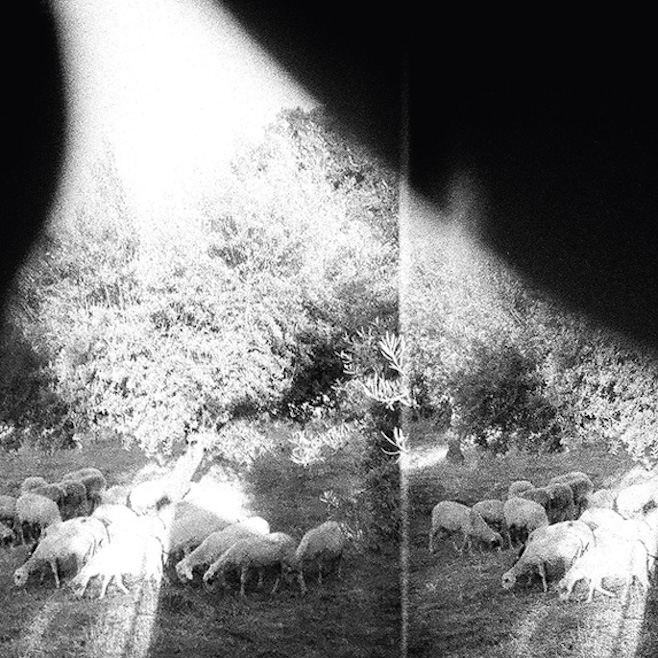When they emerged, clandestinely, in the late 1990s, Montreal’s Godspeed You! Black Emperor seemed less like an orthodox rock band, and more like a superbly-orchestrated doomsday cult. Their pessimism was ill-defined but oddly exciting. As technophobes fretted about impending millennial meltdown, Godspeed provided a soundtrack, apparently constructed from arcane prophesy, survivalist paranoia and the most expansive post-rock of the day.
It was hard to work out the precise nature of Godspeed’s angst – or, indeed, a clear sense of what their solution to the world’s problems might be. In the few interviews that they granted around the time, anarcho-syndicalism was tangentially discussed. But as the band strived to operate as a democracy, living communally at their “filthy, dirty” Hotel2Tango studio, it seemed likely the nine equal members would never be able to agree upon anything so reductive as a coherent statement of intent.
“The end of the world isn’t coming. I don’t think 1999 is any worse than 1952 or 1918,” guitarist Efrim Menuck told NME for a rare and neurotic cover story. It did little, though, to detract from the mythologizing that surrounded the band. Tortured inarticulacy and disdain for the mainstream had their advantages, intensifying the focus on Godspeed’s sad, rousing, wordless music. With every crescendo and drone, their records and gigs suggested a band desperately – or at least creatively – aware of the end of days.
Sixteen years on, that still seems to be the case. Asunder, Sweet And Other Distress is Godspeed’s seventh awkwardly-named album, if one counts 1994’s All Lights Fucked On The Hairy Amp Drooling (a cassette limited, legendarily, to 33 copies) and 1999’s Slow Riot For New Zero Kanada (a 29-minute trinket originally classified as an EP). 1997’s breakthrough F♯ A♯ ∞ began with a scorched statement of intent called “The Dead Flag Blues”. Among the gloomily lavish packaging of Asunder…, there is a grainy poster of the Maple Leaf flag, flying at half-mast, captioned, “We love you so much our country is fucked.”
In a perennially wretched geo-political climate, though, there is a comfort to be had from Godspeed’s glowering predictability. Before a hiatus that stretched through much of the ’00s, the band’s most notable change came in 2002, when the exclamation mark shifted from the end of their name to the middle. Asunder is a relatively abbreviated album by their standards – four tracks, 41 minutes – and follows a familiar trajectory: martial climaxes and blackened ambient passages, bombast and afterburn.
Rarely, though, has that trajectory been charted so effectively. Much of Asunder… has been a staple of Godspeed live sets for the past few years, evocatively known as “Behemoth” by their followers, and the opening “Peasantry Or ‘Light! Inside Of Light!” (10 minutes, 28 seconds) might be as close to trad rock as they’ve ever come, a next step on from “Mladic”, the highlight of 2012’s Allelujah! Don’t Bend! Ascend!. “Peasantry…” isn’t exactly a radical departure, with its mix of Mogwai, Amon Duul II and Ennio Morricone, but there’s also something of an exotic swagger, a heaviness that’s almost bluesy, which brings to mind Led Zeppelin and “Kashmir”.
The closing “Piss Crowns Are Trebled” (13 minutes, 50 seconds), meanwhile, is the sort of widescreen drama that the band have been enacting for the best part of two decades, with Sophie Trudeau’s violin urging the massed guitars on from one windswept summit to another. At least 15 years after post-rock’s quiet-loud math became tedious for all but the most doughty fans, Godspeed’s relentless ability to repeat and reinvigorate a very similar musical formula remains uncanny, perhaps even rather absurd.
They also persist in disrupting the cumulative sweep of their epics, so that while “Peasantry” and “Piss Crowns” could have rumbled magisterially into one another, the band’s self-consciousness means that their flow is interrupted by “Lambs’ Breath” and “Asunder, Sweet”, together constituting 16 minutes of amp burn, approaching menace, brackish white noise and drone. The void opens wider when, on the vinyl version, the ending of “Lambs’ Breath” is stretched indefinitely by a locked groove.
Even at this late date, however, there is something endearing about such contrariness. On every album, Godspeed compose a heroic ascending progression, then become tormented anew by its obviousness and seek to derail it in exactly the same way as they have always done. The marvel of Asunder, Sweet And Other Distress is how, once again, the band’s constancy is ultimately an asset rather than a curse. In 1997, muting the TV news and playing a Godspeed record felt less like an act of adolescent futility, more one of heartfelt naysaying, an aesthetic revolt against the world’s iniquities. In 2015, for good and – much more significantly – for ill, nothing at all has changed.



